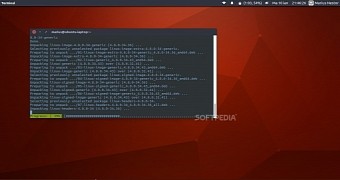A few hours ago, Canonical published several Ubuntu security notices to inform users about the availability of new Linux kernel versions for all supported Ubuntu releases.
The latest update is small but important, and appears to fix a recent security issue that could allow a local attacker to crash the vulnerable system or run programs as an administrator (root). Affected Ubuntu releases include Ubuntu 12.04 LTS, Ubuntu 14.04 LTS, Ubuntu 16.04 LTS, and Ubuntu 16.10.
"It was discovered that the xfrm framework for transforming packets in the Linux kernel did not properly validate data received from user space. A local attacker could use this to cause a denial of service (system crash) or execute arbitrary code with administrative privileges," reads one of the Ubuntu security notices.
Users are urged to update their installations as soon as possible
Canonical says that the problem can be corrected if the user updates his/her system to the newly released kernel versions that are available in the stable repositories of Ubuntu 12.04 LTS, Ubuntu 14.04 LTS, Ubuntu 16.04 LTS, and Ubuntu 16.10 for various of the supported hardware architectures.
The new generic kernel versions are linux-image 3.2.0.125.140 for Ubuntu 12.04 LTS (Precise Pangolin), linux-image 3.13.0.115.125 for Ubuntu 14.04 LTS (Trusty Tahr), linux-image 4.4.0.71.77 for Ubuntu 16.04 LTS Xenial Xerus), and linux-image 4.8.0.45.57 for Ubuntu 16.10 (Yakkety Yak).
Canonical also released new HWE (Hardware Enablement) kernels for Ubuntu 12.04.5 LTS (linux-image 3.13.0-115.162~precise1), for Ubuntu 14.04.5 LTS (linux-image 4.4.0-71.92~14.04.1), and Ubuntu 16.04.2 LTS (linux-image 4.8.0-45.48~16.04.1), as well as for Raspberry Pi 2, AWS, and GKE systems.
To update, run the Software Updater utility from the Unity Dash or open the Terminal and run the commands listed below. You can find detailed instructions provided by Canonical at https://wiki.ubuntu.com/Security/Upgrades. Don't forget to reboot your system for the new kernel versions to take effect.

 14 DAY TRIAL //
14 DAY TRIAL //